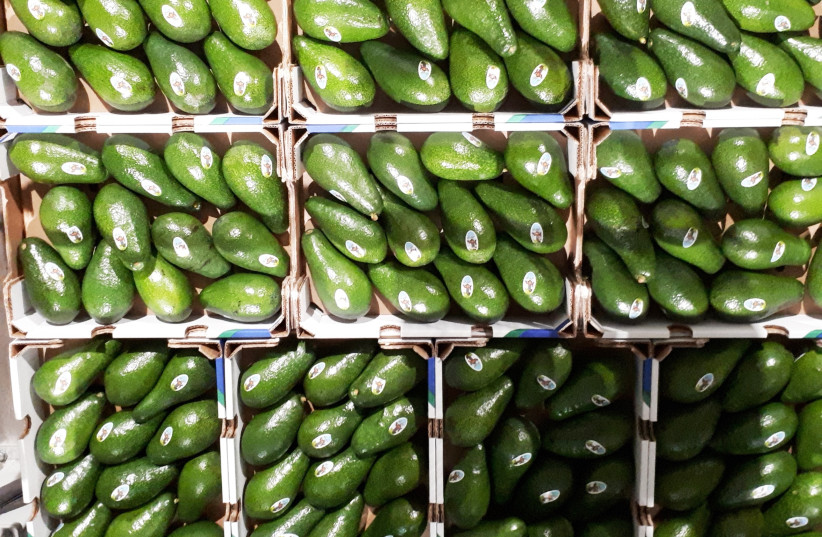What are the main benefits of eating avocado?
You don’t need any excuses to eat avocado every day, but if you have a guilty conscience about it for some reason, here are the results from five studies that will absolve your feelings.

Avocado is a fruit (yes, a fruit) that is growing in popularity since it’s delicious and upgrades any sandwich or salad. It’s a superfood and has many proven health benefits.
Avocados contribute to heart health, help reduce cholesterol levels, can help with weight loss and even strengthen the brain. All of these important health benefits have been scientifically proven in studies conducted over the years, so this green giant has proven its value.
Helps the digestive system
Scientists found that eating avocados has a positive effect on the health of the digestive tract and the stomach. Adding avocados to one meal a day leads to significant improvement in diversifying gut bacteria that aid in the proper and healthy functioning of the digestive system. The study examined 163 participants aged 25-45, either overweight or obese. For each participant, the researchers replaced one of the meals of the day with the meal they composed. The experimental group received a meal that contained avocado, while the control group received the same menu - but no avocado.
The results revealed that although avocado is a high-fat food and the participants in the experimental group consumed more calories daily than their control group members, they also burned more fat than them. Burning fat at a higher rate means that participants who ate avocados accumulated less fat in their digestion than the food they consumed. Researchers also added that avocados have a lot of dietary fiber and monounsaturated fat, which are two components that contribute to heart health, and also that eating avocados causes participants to develop a more diverse intestinal bacterial population, which streamlines the process of breaking down dietary fiber.
Avocado (credit: Courtesy)
Reduces cholesterol
Incorporating avocados into your daily diet can also help reduce cholesterol levels, a problem for many in the West. LDL cholesterol (also known as "bad" cholesterol) accumulates inside the arteries, narrowing and impeding blood flow through them. In a study conducted at Penn State University, researchers gathered 45 older volunteers who were overweight or obese. In the first two weeks of the study, all participants ate a “fast” menu that simulated an average American diet. Subsequently, participants were divided into three groups, each given a different menu for five weeks: a low-fat diet, a diet with a moderate fat content and a diet with a moderate fat content + one avocado per day.
Researchers found that participants in the avocado diet group had fewer oxidized particles of LDL in their blood, and also had more lutein, which may be the substance that protects LDL from oxidation.
Strengthens the eyes and vision
A study found that eating one whole avocado a day improves brain and eye function in healthy adults thanks to the lutein content and several other nutrients found in avocados. The study involved 40 participants whose general health is good aged 50 and over. They were asked to eat one whole avocado daily for a period of six months. Control group participants were asked to add one medium potato or a cup of chickpeas (instead of avocado) to their daily menu. The foods given to the control group contain calories similar to avocados, but they contain almost no lutein or unsaturated fat - which are present in avocados.
Researchers found 25% more lutein in the eyes of the experimental group participants who ate avocados each day. Those participants received higher results from the control group members also in cognitive tests that measured their memory, processing speed and concentration levels.
Fights diseases
Avocado
pit peel may be a gold mine of powerful compounds against a variety of
diseases. They may also be a substance that increases the effectiveness
of cosmetic remedies, perfumes and other consumer products. Researchers
dried the stone peels of 300 avocados and ground them into a powder. In
further processing, they were able to produce two products from the
powder: oil and wax. In the oil extracted from the peels of the avocado
stones, researchers found 116 different natural compounds, and in the
wax 16 compounds. These compounds have been found to have medicinal
properties that can be used to treat a variety of diseases such as
cancer, heart disease and more.
Among the compounds the researchers discovered: behenyl alcohol (docosanol) an important component in quite a few antiviral drugs, heptacosane - a substance that may inhibit the development of tumor cells and dodecanoic acid that has been shown to contribute to increasing HDL (good cholesterol) levels that help prevent plaque buildup in the arteries.
Helps treat leukemia
Researchers from Canada have found an avocado compound that may lead to better treatments for leukemia patients. More specifically, the compound they discovered targets and attacks a very specific enzyme, which appears to play a critical role in cancer cell growth. The study dealt with acute AM, which is the most dangerous type of leukemia. Most people diagnosed with AML are adults over the age of 65 and only about 10% of them survive after 5 years from the initial diagnosis..
Leukemia cells contain a relatively large amount of an enzyme called VLCAD that aids in the metabolic process of the cell. In their search for natural compounds that effectively fight this enzyme, researchers found that the most effective they found was derived from avocados. Today, about half of those diagnosed with AML opt for palliative care (treatment and try chemotherapy in an attempt to cure the disease but unfortunately, in most cases, it worsens their condition. So scientists are looking for other drug treatments that will be less toxic for these patients.



No comments:
Post a Comment